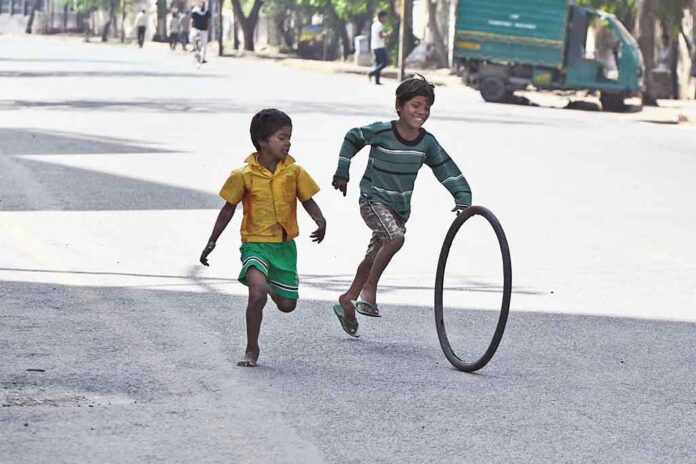Since the day we got independence, our administrators, politicians and educators have been getting public applause for their demand to include sports in our school curriculum as a compulsory subject. Nothing happened to date, apart from unfulfilled demands and declarations. In many schools, we have physical education teachers, and most of them engaged in serious assignments such as running students’ stores or roaming around the school with a cane to teach discipline. But only a few teachers have worked towards forming good school sports teams with their initiatives and efforts. Is this the kind of sports that our kids have to learn from school?
The government should not make sports a compulsory subject at the primary level. But must ensure adequate sporting opportunities for every kid. Sports is the best teacher in the universe and surely a better teacher than experience. Experience is a brutal teacher, but sports is a jovial one. Every individual learns many things from sports, which can’t be learned from any teacher, school, college or book.
A kid starts socializing with his classmates by inviting or by accepting the invitation to play. Then they select a team to play in. The first time, they select teams based on their perception of each other. For example, a kid thinks that boy A is a good defender. So he selects him first for his team. These are the basics of human resource management. Selection, induction and engagement. After a few matches, the kids will select their team based on past performance. The best performers will get priority in both teams. This is what we call in modern terminology, Statistics, Data Analytics or in sports, sports analytics.
When we were kids, we used to buy balls by pooling our pocket money. It was our first lesson on financial management, cooperation, crowdfunding and teamwork. When we couldn’t raise money for buying a real bat, we used the legs of broken benches and desks to play cricket. During the rain, we played cricket in the classroom with books and paper balls. We learned many things like creativity, problem-solving and sports engineering from these instances. While space was less to play cricket, we created our own rules and everyone followed them. So we learned law-making and execution. We made a bat, ball, and stump and prepared the pitches for the game.
During cricket season we used to play cricket and during football season we played football. We even played war games during Ramayana and Mahabharat telecasting. It was our Change Management lessons, to change according to the changes in the circumstances to survive and excel. Sports helped us to learn, practice and excel in many important management skills such as leadership, planning, organizing and decision-making. The most important lessons sports taught us were how to accept failure and how to turn that failure into success. Which text, teacher or trainer can teach these lessons better? No one can.
What will happen if sports education becomes compulsory at the primary level? Recently a group of kids in Nilambur in Kerala state organized a mock meeting to discuss buying football. Some posted the video of that meeting on social media and it became an instant hit. Many good people without realizing that they are spoiling those kids showered them with footballs, boots and jerseys. These kids missed many good lessons they would have learned from sports. Financial management, cooperation, problem-solving, creativity, sports engineering and so on. Sometimes, tomorrow if they face any other problem, they will post a video on social media and wait for helping hands.
If sports become a classroom subject, the learning will also be limited to the curriculum and the teachers’ delivery. Kids may learn bowling, batting and fielding. They may learn to kick the ball and team formations. But they will miss many lessons they were supposed to learn naturally from sports. Sports education will focus on marks or grades. It will force kids to hate sports. Sports must stimulate physical, intellectual and emotional well-being. When human beings play, it happens. While they play voluntarily, automatically they learn (intellectually), they do physical workouts (while playing marbles, the players do many sit-ups without their knowledge) and their minds adjust to different emotional circumstances.
So, at a primary level never impose the burden of organized sports on kids. Please allow them to play with whatever resources are available. Teachers and parents must encourage kids to play. We must understand everyone who plays football is not going to be a Ronaldo. Some of them will select sports as their career. Others will select whatever career they like. Whatever they are going to be in future, the games they played during their childhood are going to decide their success. Their physical, intellectual and emotional health will be decided by these games, especially their ability to accept failures and turn those failures into successes in life and career.
So, please don’t make sports a compulsory subject. But give every kid the opportunity to play the maximum.


















